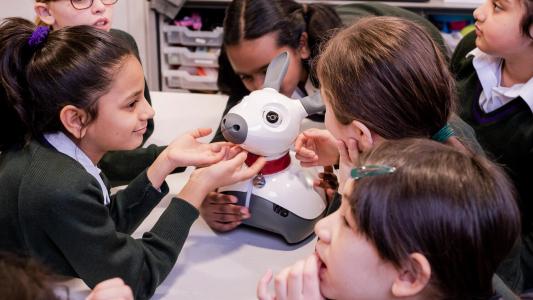A friend recently texted me, “this is a lonely existence.” She and I would see each other every December. But this year, December came and went, without either of us being completely aware of how much we missed the other. Instead of texting her back, I called her on Facetime, and we made a pact to check in more regularly.
Plenty of people are feeling the weight of loneliness since the pandemic began. Many of them are searching online for answers. At the start of the first COVID-19 lockdown, Google trends showed that online searches for subjects linked to wellbeing, like boredom and loneliness, jumped dramatically, according to a study.
It’s All in the Numbers
Researchers from the University of Ottawa, Warwick Business School, Paris School of Economics, and Aix-Marseille combed through Google trends data from the U.S. and 10 countries in Europe.
They found patterns that suggest people’s mental health was “severely affected” by the pandemic lockdowns and published their work in the Journal of Public Economics.
The team collected Google trends data between January 2019 and April 2020. They looked at the trends for wellbeing-related search terms before and during the lockdowns. Compared to the same period in 2019, they found that searches for “boredom” in Europe and the U.S. rose 93% and 50%, respectively.
Other related search terms also rose. “Loneliness” rose 40% in Europe and 16% in the U.S. And “worry” rose 27% in Europe and 12% in the U.S.
They also ran comparative studies at the country, state, and city levels to account for variations in restrictions. They found that the degree of the lockdown didn’t matter. Both partial and full lockdowns saw similar Google trends.
“There was a substantial increase in searches for boredom, loneliness and worry,” said Nick Powdthavee, a behavioral scientist and an author on the paper. “It may be necessary to make sure support is provided to help those struggling most with lockdown.”
Oddly, searches for stress, suicide, and divorce saw the opposite swing in Google trends — decreasing in intensity.
“We did see the number of searches for sadness revert towards the norm, perhaps reflecting hopes that lockdown would be relatively short-lived,” said University of Ottawa economist Abel Brodeur.
“However, the effects on boredom and worry have not dissipated over time and this snapshot of wellbeing in the first weeks of lockdown does not account for potential fatigue as individuals grow increasingly tired of self-regulating as time passes.”
Loneliness isn’t the only troubling pandemic trend. Schools are grappling with the question of when to re-open for in-person classes. People in favor of opening cite studies that show a devastating trend for kids kept home by restrictions.
Being out of school will cost them — in learning, socialization, and money. A study evaluating the long-term economic ramifications of distance-learning found that K-12 students will experience a 3% lower income over their lifetimes because of missed schooling.
Domestic abuse reports in the United States rose in 2020 in correlation with stay-at-home orders from COVID-19 — likely because people have more time on their hands, fewer places to go, and loss of financial security.
Offering Support
Rosemarie Perry, a neurobiologist in the Department of Applied Psychology at New York University, says that the COVID-19 pandemic can build “empathy bridges” by helping people understand others’ perspectives, such as those who live with financial pressure all the time.
“Nothing like a population health crisis to make you realize how much we all depend on one another in some way, right,” she said, “How can we come together to build a stronger society?”
And — that is precisely what people are doing. In big and small ways, people are coming together to offer support.
Little Brothers – Friends of the Elderly builds bonds between isolated seniors and volunteers by scheduling regular check-in chats over the phone. The program already has more than 300 volunteers.
Some cities are placing domestic violence victims in hotels, as shelters aren’t conducive to social distancing. Women in France, who are experiencing domestic violence, are using the code word “Mask-19” to signal a pharmacist to call the authorities for help.
Coa offers online therapist-led, emotional fitness classes. When the pandemic started, they added pandemic-related online courses like “Dealing With Anxiety During COVID-19,” and “When the Celebrations are Cancelled – Dealing with Missed Milestones.”
Even though vaccine distribution offers signs of hope, we will still need to address many of the pandemic-adjacent problems, long after the pandemic subsides. It will take creative solutions, large and small, to tackle the new challenges we face.
We’d love to hear from you! If you have a comment about this article or if you have a tip for a future Freethink story, please email us at tips@freethink.com.






